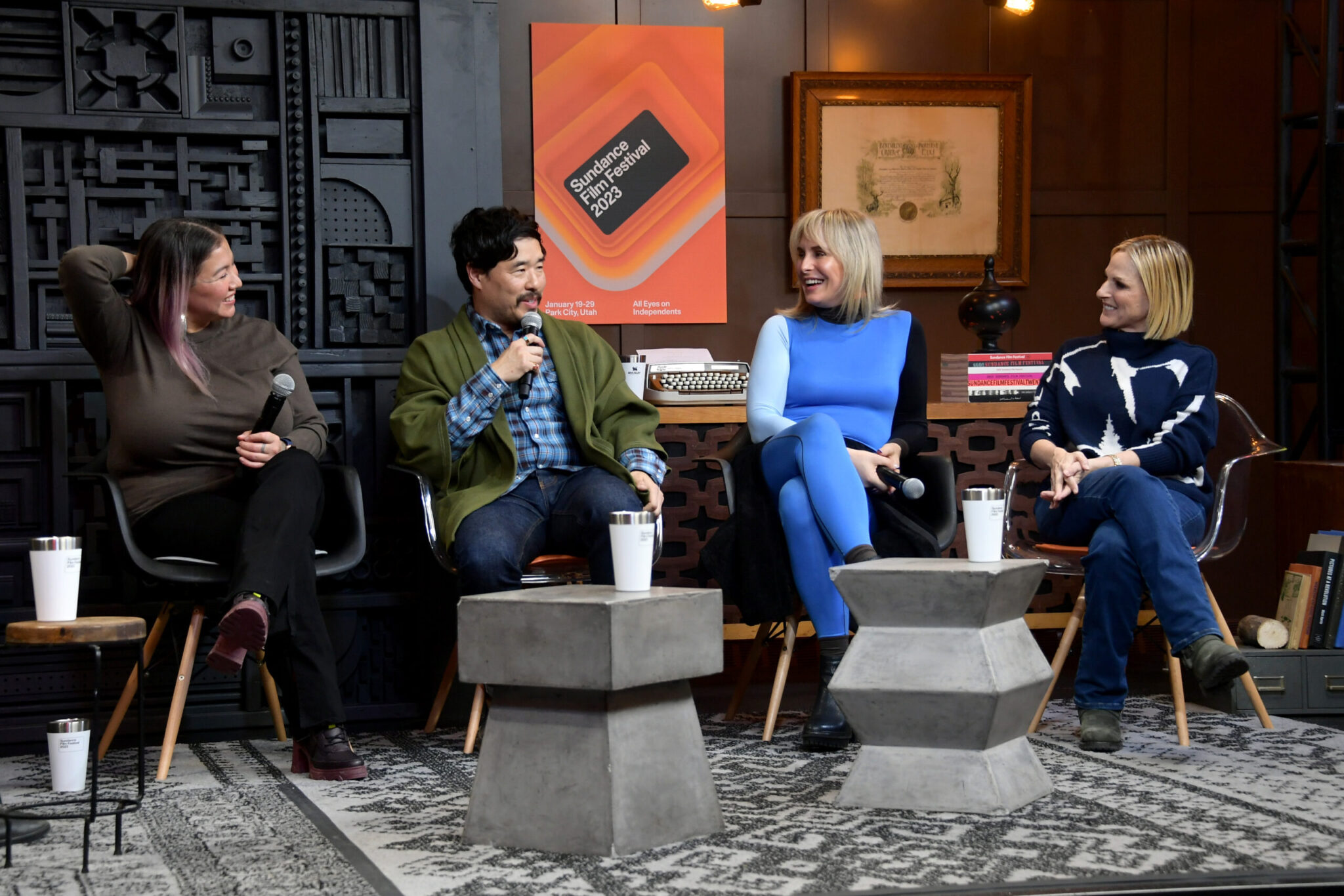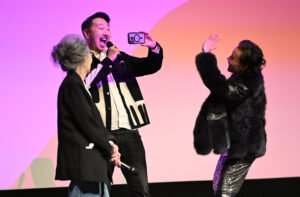(L-R) Alethea Arnaquq-Baril, Randall Park, Zackary Drucker and Marlee Matlin attend the 2023 Sundance Film Festival – The Big Conversation: Complicating Representation at Filmmaker Lodge in Park City, Utah. (Photo by Unique Nicole/2023 Getty Images)
By Stephanie Ornelas
While increased visibility for historically underrepresented people is empowering, it can also bring new challenges and complex questions. Yesterday’s event explored this at the Filmmaker Lodge and gave the chance for successful creators to share some insight on the current and sometimes false or performative interest in diversity.
The talk, The Big Conversation: Complicating Representation, included actor and 2023 juror Marlee Matlin, actor-director Randall Park (Shortcomings), director Zackary Drucker, and director Alethea Arnaquq-Baril.

“I was around for, what we call, the trans tipping point,” says Drucker. “I helped shepherd that moment of trans folks becoming visible. And in that stage, because the trope of trans sex workers was so overdone in narrative and television, it was all that people knew of us. There was a direct and intentional effort to create more diverse, more robust renderings of trans life, and with the respectability of politics — they always come in that early stage — trans sex workers were really taken out of the conversation.”
Marlee Matlin talked about how, as a deaf person, people expect that she has to live a certain way, but that’s certainly not the case. “People assume that, as a deaf person, I have a limitation and I live a limited life, and that’s wrong. I live just like everybody else.”
Matlin went on to explain that when she became deaf at 18 months, her parents didn’t know what to do. They had never seen a deaf child before and they didn’t know how to raise her.
“They didn’t know what school to take me to, they didn’t know they would even communicate with me, what my future would be like, or what I would become — we’re talking about 1965.
So, it was a long journey to the point of where I’m at today, talking about accessibility for my community, whether we’re talking about captioning, employment, communication, language access, education. Over the years, I’ve seen the change, and I’ve been damn patient.”
Matlin even appeared in front of the Senate, urging the need for devices in order for captioning to take place on television. They approved it on the spot.

“There are things that are happening, and yet, I keep thinking to myself, I was probably one of the most visible deaf people, as you can see in my work, and it was a very lonely job because I couldn’t do it all myself. I couldn’t be an advocate for everybody. But I saw that change with CODA. I’m proud to be a part of this discussion, understanding that we still have a lot of work to do.”
This is Arnaquq-Baril’s 28th year in the industry, and she acknowledged that the change in representation has been huge in the Indigenous film world, but still says it’s not enough.

“We need multiple representations. We need to see all the mutli-faceted parts of our communities,” says Arnaquq-Baril. “I was inundated by all these white male script writers and producers who were sending me these scripts, and they were all the same. It was all the tropes of Indigenous women. Page one was usually an Indigenous woman undergoing violence or being sexualized in some way. Then a white man would come along and completely understand her.”
Park echoed Matlin’s words, agreeing that one person cannot represent a community. “And I’m not just saying that because you’re a juror,” laughs Park.
“But I think the same goes for stories. A single story can’t represent everybody, and I think that the answer to that is just a lot more stories — and a lot more stories from different perspectives within a community, created by people from that community, and all the intersections of that person,” explains Park.
“You get more stories out there, you get more perspectives, and you don’t have that pressure of having to represent everybody. I certainly feel that things have been changing, but there’s just a long way to go to get the full range.”







